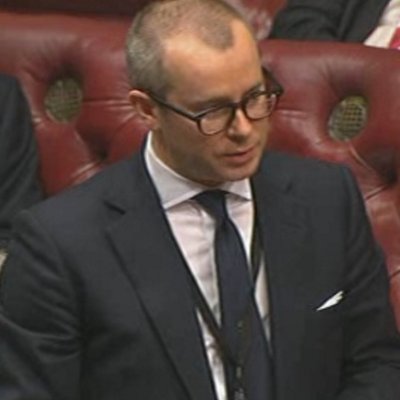 On Monday, I was fortunate to be in the audience while the First Minister gave a speech on education. In that speech, she set out “twin priorities of improving attainment for all children and tackling the attainment gap between children in deprived and better off areas.” She also announced that the Scottish Government were now “developing a National Improvement Framework”.
On Monday, I was fortunate to be in the audience while the First Minister gave a speech on education. In that speech, she set out “twin priorities of improving attainment for all children and tackling the attainment gap between children in deprived and better off areas.” She also announced that the Scottish Government were now “developing a National Improvement Framework”.
Further details are promised in the forthcoming programme for government, but this seemed a good moment to review the existing statutory improvement framework and priorities in Scottish education.
Raising Standards
Section 3 of the Standards in Scotland’s Schools etc. Act 2000 imposes a duty on the Scottish Ministers to “secure improvement in the quality of school education which is provided for Scotland” and a complimentary duty on education authorities to “secure improvement in the quality of school education which is provided in schools managed by them”.
National Priorities in Education
Section 4 of the 2000 Act requires the Scottish Ministers – following a period of consultation – to define “priorities in educational objectives for school education provided for Scotland”. These priorities are currently set out in the Education (National Priorities) (Scotland) Order 2000, and are as follows:
- to raise standards of educational attainment for all in schools, especially in the core skills of literacy and numeracy, and to achieve better levels in national measures of achievement including examination results;
- to support and develop the skills of teachers, the self-discipline of pupils and to enhance school environments so that they are conducive to teaching and learning;
- to promote equality and help every pupil benefit from education, with particular regard paid to pupils with disabilities and special educational needs, and to Gaelic and other lesser used languages;
- to work with parents to teach pupils respect for self and one another and their interdependence with other members of their neighbourhood and society and to teach them the duties and responsibilities of citizenship in a democratic society; and
- to equip pupils with the foundation skills, attitudes and expectations necessary to prosper in a changing society and to encourage creativity and ambition.
This section also allows the Scottish Ministers to define and publish measures of performance for each of these priorities. More on these later …
Annual Statement of Improvement Objectives
These national priorities feed directly into the next level, which falls to the education authorities. Section 5 of the 2000 Act requires education authorities to (again following consultation) prepare and publish an annual statement of education improvement objectives. The objectives must be set in respect of each of the national priorities and by reference to any measures of performance published by Minsters.
The education authorities must thereafter prepare and publish an annual report detailing their success in meeting the objectives set by them in the most recent statement of education improvement objectives.
School Development Plans
From the authority level, we move one step closer to the pupils. Section 6 of the 2000 Act then requires each public school (following consultation) to prepare – annually – a school development plan which must take account of the objectives found in the annual statement of education improvement objectives. This will be followed by an annual report on the implementation of the plan. Parents of pupils must have access to the school development plan upon request and without charge, and must receive a summary of the plan automatically (i.e. without having to ask for one).
Review of School Performance
Section 7 of the 2000 Act then completes the chain of target setting and monitoring, by requiring each education authority (following consultation) to define and publish “as respects quality of education provided, measures and standards of performance for the schools managed by them;”. From time to time, the education authority shall review the quality of education provided by a particular school and, if the school is not performing at a satisfactory level, then they must take such steps as may be required to remedy the problem.
Her Majesty’s Inspectors
Her Majesty’s Inspectors of Education (now a component part of Education Scotland) have long enjoyed powers in terms of Section 66 of the Education (Scotland) Act 1980 to inspect schools in Scotland. To this, Section 9 of the 2000 Act added the power to inspect education authorities.
Sections 10A to 10C of the 2000 Act provide a process whereby, if an education authority is failing to secure improvements in education, the matter can be referred by HMI to the Scottish Ministers who may serve a preliminary notice. If the response to that notice is unsatisfactory, then an enforcement direction requiring the authority to take specified actions to remedy the failure.
Equivalent provisions in Sections 66B to 66D of the 1980 Act provide similar powers in relation to schools which are failing to secure improvement.
Guidance
Finally, Section 13 of the 2000 Act allows the Scottish Ministers to issue guidance to education authorities in relation to their functions as set out in this framework. To date, the only such guidance issued has been “Education Guidance Issued Under Section 13 of the Standards in Scotland’s Schools etc Act 2000 on Gaelic Education” which was sent to Directors of Education by Peter Peacock MSP, the then Minister for Education & Young People, on 17 September 2004.
National Framework for Improvement
So, there is already a fairly detailed and rigourous “national framework for improvement” in place. Scottish Minsters define national priorities for education and performance measures for each; education authorities incorporate these into their annual statement of education improvement objectives and then report on whether these have been acheived; and each school draws up a school development plan based on the objectives and reports to parents on what they have done to implement the plan. If insuffient improvement is achieved, then enforcement measures can be taken. This should be easily sufficient to drive and monitor the improvements the First Minister is seeking.
National Priorities
The national priorities for education could be said to already encompass the twin priorities set out by the First Minister in her speech, but in any event the Scottish Ministers are at liberty to set new national priorities. This needs the consent of the Scottish Parliament and must follow a process of consultation, but neither should prove objectionable or difficult.
Indeed, since the power to set national priorities was created, they have only been used once (in 2000). The national priorities are certainly due a spring clean. If nothing else, some of the terminology now seems particularly outdated. The national priorities for education for Scotland still refers to pupils with special educational needs, almost a decade after that term was removed from Scots law. They refer to Gaelic as a “lesser spoken language” which while accurate is probably not how this Government would choose to refer to the Gaelic language.
Indeed, the whole concept of national priorities for education seems to have fallen by the wayside. Though very much part of the legal duties imposed on both Ministers and authorities, you hardly hear people talk about them. The Scottish Ministers have not defined performance measures for the national priorities since 2003, and I strongly suspect that no-one is still trying to count improvements in the numbers of pupils reaching assessment milestones against the 5-14 curriculum (among other measures specified).
Incidentally, the national priorities regarding improving measures of acheivement and the performance measures set out actually fit very well with the other idea of national assessments, set out by the First Minister on Monday. Whether the return of league tables for Primary Schools is a price worth paying for keeping tabs on schools’ performance is another question for another day …
If you have children of school age, why not ask for a copy of their school’s development plan and the authority’s annual improvement objectives and see if you can find the references to the national priorities within those documents? Maybe you will find them (or perhaps not).
The website set up by the (then) Scottish Executive at www.nationalpriorities.org.uk is no longer maintained or even owned by them and has fallen into the hands of “cybersquatters” who have filled the page with ad links. It’s just a bit embarrassing!
However, it would be the work of a moment to draft a fresh order to lay before Parliament updating and redefining the national priorities. They then automatically slot into a pre-existing mechanism for driving improvement in the standards in Scotland’s schools and avoid much unnecessary and counter-productive bureaucracy, time, money and effort in setting up new systems.


 According to the Scotsman (
According to the Scotsman ( On Monday, I was fortunate to be in the audience while the
On Monday, I was fortunate to be in the audience while the 

 The
The  A brief update as to the franchise for the EU referendum. The franchise is based upon those eligible to vote in UK general elections – this is why EU citizens are not allowed to vote, even though they can vote in devolved, local and European elections.
A brief update as to the franchise for the EU referendum. The franchise is based upon those eligible to vote in UK general elections – this is why EU citizens are not allowed to vote, even though they can vote in devolved, local and European elections.


